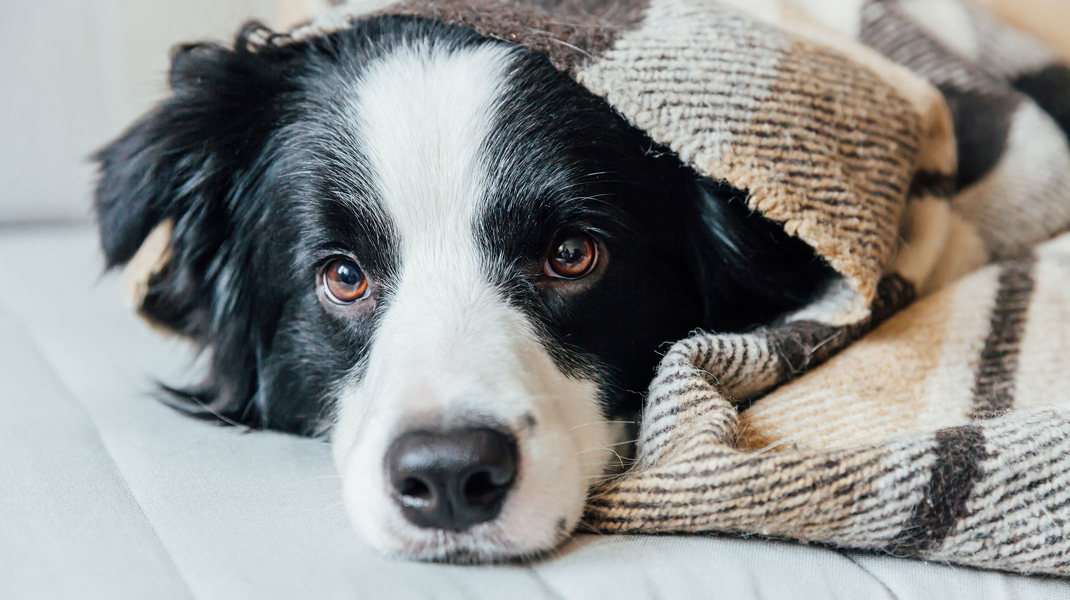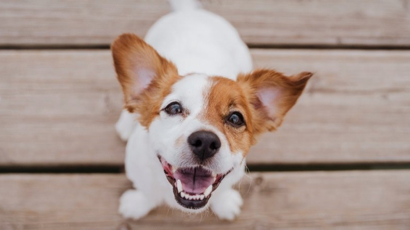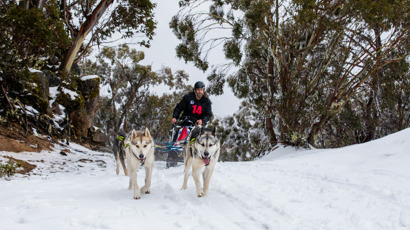How To Care For Dogs in Winter

Changes in routine can unsettle pets—and people!
During winter, it’s important to make sure your canine companion knows that, while life might be a little different during this time of year, they can still rely on you.
Here’s how you can help ensure your dog is comfortable during winter and how to keep up the fun during the chilly season.
Monitor and adapt your dog’s nutritional needs
Like us, dogs need to watch out for accidental weight gain during winter. The colder months can make us feel like we need more calories to stay warm, so it’s easy to accidentally project that onto our four-legged friends. However, the reality is a little more complicated than that. The seasonal dietary needs of our furry friends can be impacted by a variety of factors, including breed, age and activity levels.
Instead of increasing their intake, you may need to consider reducing your dog’s meal size if they spend more time indoors, with minimal exercise. Conversely, dogs spending more time outside, such as working dogs, may burn extra calories as their bodies work harder to keep warm. In those cases, minor portion increases could be beneficial.
Monitoring your pet’s body weight is a good starting point when trying to determine the right portion size. However, some expert advice or your local vet may be able to help you find a more tailored approach for your dog.
It’s also important to ensure your dog’s food contains nutrients they need to keep them healthy during winter. Of course, if your mate has any underlying health issues, for example, as a result of old age, you should contact your vet to see whether they have any additional needs. And no matter the weather, always ensure your pet has access to fresh water.
Helping your dog avoid the winter chill
As a pet parent, protecting your companion from the cold should be part of doing your due diligence. For dogs sleeping outdoors, a kennel or area secured from the elements, along with bedding appropriate for winter climes, can help keep them comfortable.
If your dog sleeps inside during winter, make sure to allocate them a warm spot. The RSPCA also recommends their bed is elevated off cold floors and away from drafts. If their spot is next to a fireplace or heater, you should take the necessary safety precautions and equip them with safety grills or screens.
Some dogs benefit from a winter coat or jacket when outside, notably the elderly or young, small dogs, those with a single coat, or with immune or health issues. However, you should ensure your pet’s ensemble is the right fit – neither restrictive, nor too loose – and make sure the garment doesn’t cause them to overheat.
What to do when it’s too cold for walks
The Tufts Animal Condition and Care (TACC) Cold Weather Safety Chart can help you decide when to reconsider exercising your dog outdoors, depending on their physicality and the severity of winter weather.
If a walk is out of the question, it could be time to get creative. Perhaps there are indoor dog parks in your area or a doggy day care centre where they can blow off some steam?
A long-lasting chewable treat, or toys designed to make your friend work for their treat, could also help keep them entertained indoors. Other affordable workout classics that never grow old include fetch, chasings, hide and seek, or the good ol’ tug of war!
You could also:
- Teach your dog new tricks
- Groom your pet (and maybe throw on a face mask for yourself)
- Arrange a doggie play date with another owner and pet
- Research dog-friendly venues
The emotional impact of winter
Not unlike humans, the colder weather as well as a different routine can affect your mate’s emotional state, so giving them a little extra attention and love can go a long way in making them more comfortable during the change of season.
The transition between seasons is easier for your pet if you replace pastimes lost to the cold with new stimulants. Your dog looks to you for their well-being in the form of comfort, guidance and care, and the colder months can provide that with a little more creativity and TLC – so you both stay warm and happy.


